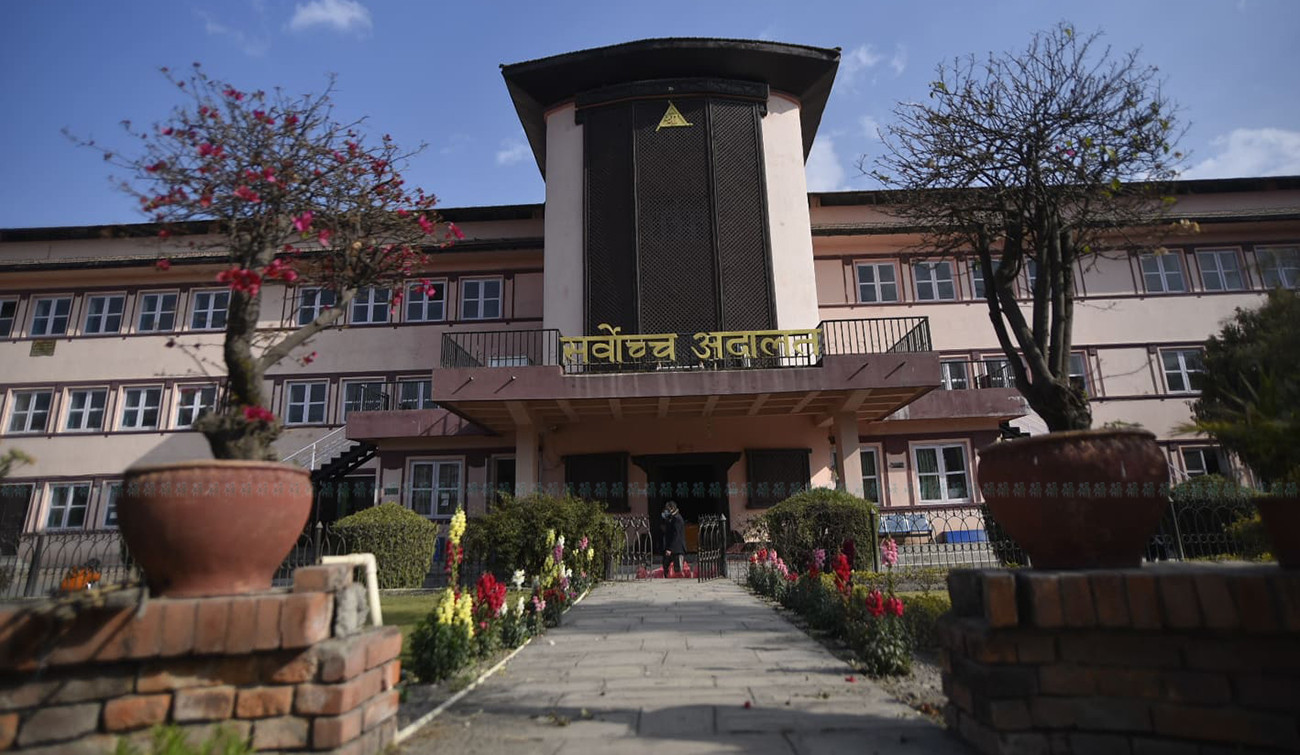A writ petition has been filed in the Supreme Court, arguing that the law prohibiting taking a person's photograph without their consent conflicts with the Constitution.
On Monday, advocates Monika Dhakhwa, Rajendra Pokhrel, Gyan Bahadur Basnet, Shyam Krishna Maskey, and Abhay Raj Joshi filed a petition in the Constitutional Bench, arguing that Section 295 of the National Penal Code restricts press freedom and contradicts the Constitution.
Section 295 prohibits taking or altering a person's photograph without their consent.
“No person shall, without consent of another person, take a photograph of that other person or make another photograph by mixing others’ photograph with the photograph of that other person,” Section 295 (1) of the act states.
However, it adds: “Provided that a person who, while taking a photograph of any public place, happens to take also a photograph of any person remaining in such place shall not be considered to commit the offense under this section.”
The petitioners argue that this provision is vague and creates ambiguity.
"The provision is unclear and creates interpretive ambiguity, which restricts the freedom of the professional press," the petition states.
The petitioners have demanded the annulment of Section 295, claiming it obstructs fundamental rights.
"This section creates obstacles to the exercise of freedom of expression, right to communication, right to information, and right to employment guaranteed by the Constitution as fundamental rights of Nepali citizens, and it appears to be against the preamble of the Constitution. Therefore, it is necessary to declare Section 295 against the Constitution and annul it," the petition states.
The petition has named the Office of the Prime Minister and Council of Ministers, the Ministry of Home Affairs, the Federal Parliament Secretariat, and the Ministry of Law, Justice, and Parliamentary Affairs as respondents.
The petitioners also argue that Section 295 conflicts with the Constitution of Nepal, the Privacy Act, and provisions of international human rights conventions to which Nepal is a party.
They further claim that this has impacted the employment of photojournalists.
"Those in power and authority can use provisions like Section 295 to threaten and suppress information and news unfavorable to them. If information and news is suppressed in such a manner, it will restrict the citizens' rights to information and communication guaranteed by the Constitution," the petition states.
The petitioners have sought an interim order to suspend the implementation of this section until the case is resolved.
They have also demanded that the case be prioritized, citing it as a matter of serious public concern requiring a prompt decision.
The petition has been scheduled for a hearing on August 6.

